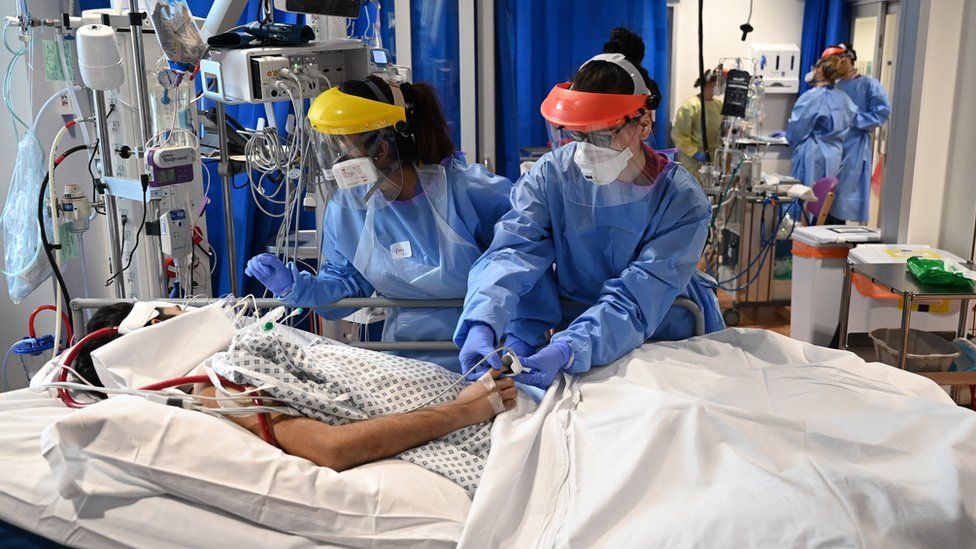
 i_need_contribute
i_need_contribute
A long-term plan is needed to help nurses cope with post-traumatic stress resulting from the coronavirus pandemic, union officials said.
Last year the Royal College of Nursing (RCN) ran a survey looking at its impact on front-line staff and how it had changed nurses' lives.
Of 2,000 Welsh members who took part, 75.9% reported increased stress and 52% were worried about their mental health.
The Welsh Government said it recognised the pressures on NHS workers.
Nicky Hughes, associate director of nursing at RCN Wales, said: "The Welsh Government needs to set a long-term plan in place to deal with post-traumatic stress and other mental health issues amongst nurses as a result of the pandemic.
"Nurses are exhausted, stressed and nearing burnout. Every day they tell us that they feel that they have nothing left to give and feel devalued."
Almost a year on from the start of the pandemic nurses have had to find "ever more physical and emotional strength" to cope with Covid-19, said Ms Hughes.
The RCN told BBC Radio Cymru's Dros Frecwast programme nurses needed "adequate psychological support".
Mental health charity Mind Cymru agreed with the RCN that a "coherent long-term strategy" was needed to help front-line workers deal with the pandemic's effect on their mental health.
"We urge Welsh Government to factor this in to their plans and take the necessary steps to give people the support they need," said Simon Jones, Mind Cymru's head of policy.
"Nursing staff and other healthcare professionals have played, and continue to play, a vital role in combatting the pandemic, often putting their own health and wellbeing at risk.
"Even before the outbreak, we heard from many healthcare professionals struggling with the mental health impact of things like long working hours without breaks, unsociable shift patterns, and dealing with traumatic events."
 IMAGE COPYRIGHTPA MEDIA
IMAGE COPYRIGHTPA MEDIA
image captionThe RCN told BBC Radio Cymru's Dros Frecwast programme nurses needed "adequate psychological support"
A mental health support hotline for front-line NHS staff in Wales - Health for Health Professionals (HHP) Wales - has been set up by Cardiff University and has received Welsh Government funding.
The hotline's director Prof Jonathan Bisson said he was "encouraged" by the Welsh Government's investment in HHP Wales along with Traumatic Stress Wales, which helps people who have experienced traumatic events.
"These two initiatives are taking a long term strategic approach to support health workers exposed to traumatic events," Prof Bisson said.
"HHP Wales offers access to mental health support for any member of NHS staff in Wales and has linked with Traumatic Stress Wales to provide evidence-based treatment to health workers who are experiencing post traumatic stress disorder as a result of traumatic experiences related to the pandemic and other causes."
The Welsh Government called the "commitment and tireless hard work" of nurses across Wales "truly remarkable".
A spokesman said: "We recognise the pressures the NHS workforce is experiencing and have worked closely with NHS employers and trade unions to create a comprehensive wellbeing package to help support them, which includes a dedicated and confidential Samaritans listening support helpline.
"We have also expanded our Health for Health Professionals Wales service which offers psychological and mental health support, as well as a number of free-to-access health and wellbeing support apps."
RCN Wales said it was glad the Welsh Government was backing projects supporting health workers.
It said it encouraged the continued development of a "long-term strategy to deal with the lasting impact of the Covid-19 pandemic on our nursing workforce."